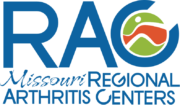Self-Management Resources for Caregivers (Haga clic aquí para recursos para cuidadores en español)
These tools are specifically designed for caregivers of individuals who have one or more chronic health condition. Caregivers often have similar concerns arise as those who have a chronic health condition, including stress, a range of emotions (including anger), and concerns with how to communicate with health care professionals.
10 Tips for Family Caregivers (National Family Caregivers Association)
Support for Caregivers (Healthfinder.gov)
Communicating Effectively with Healthcare Professionals (National Family Caregivers Association)
FAQ: Caregiver Stress (DHHS – Office on Women’s Health)
Caregiver Stress Check (Alzheimer’s and Dementia Caregiving Center)
Caregivers and Stroke (National Stroke Association)
Disaster Preparedness: Disaster Planning for Older Adults and Adults with Disabilities (eXtension)
Care for the Family Caregiver: A Place to Start (National Alliance for Caregiving)
Caregivers: Care for Others – but Don’t Forget About You (USA Today)
Resources for Caregivers – 2007 (National Alliance for Caregiving)
A Family Caregiver’s Guide to Hospital Discharge Planning (National Alliance for Caregiving)
What Should Every Caregiver Know? (Centers for Medicare and Medicaid Services)
How Do You Care for Someone with a Disability, Chronic Illness, or Injury? (Centers for Medicare and Medicaid Services)
How Can You Plan for the Future? (Centers for Medicare and Medicaid Services)
The Conversation Project (Institute for Healthcare Improvement)
Caring for Yourself When You are Caring for Others (Centers for Medicare and Medicaid Services)
Caregivers and Exercise – Take Time for Yourself (NIH – Go4Life)
Resources for Caregivers of Older Adults (National Council on Aging)
How Do You Care for Your Aging Parents from a Distance (PBS)
Caregiving and Obesity (Missouri Arthritis and Osteoporosis Program)
Caregiving and Arthritis (Missouri Arthritis and Osteoporosis Program)
Caregiving and Diabetes (Missouri Arthritis and Osteoporosis Program)
Help a Loved One with Diabetes (NIH – National Diabetes Education Program)
Helping People with Alzheimer’s Disease Stay Physically Active (NIH – Go4Life)
Helping Older Family Members Become More Active (NIH – Go4Life)
Overview of Developmental Disabilities (CRC Health Group)
Youth Programs (CRC Health Group)
My Partner Was Just Diagnosed with a Chronic Illness – Now What? (National Healthy Marriage Resource Center)
Mourning the Death of a Spouse (NIH – National Institue on Aging)
Healthfinder.gov Resources on: Caregivers (Healthfinder.gov)
Healthfinder.gov Resources on: Family and Medical Leave Act (Healthfinder.gov)
Healthfinder.gov Resources on: Long Term Care (Healthfinder.gov)
Tips for Choosing Care for an Aging or Ailing Family Member (The New York Times)
Skilled Nursing Facilities (Skillednursingfacilities.org)
Assisted Living Facilities (Assistedlivingfacilities.org)
Home Health Care Agencies (Homehealthcareagencies.com)
Adult Day Care (Adultdaycare.org)
The National Long-Term Care Ombudsmen Program (National Long-Term Care Ombudsmen Program)
Nursing Homes: Making the Right Choice (NIH – National Institues on Aging)
This list, though thorough, is not complete. If you would like more suggestions on specific activities or techniques for self-management and physical activities, please contact your Regional Arthritis Center Coordinator, or the Missouri Arthritis and Osteoporosis Program.
If you have self-management resources you would like to be shared on this site, please contact the Missouri Arthritis and Osteoporosis Program.
Images used on this page are from The Noun Project.
